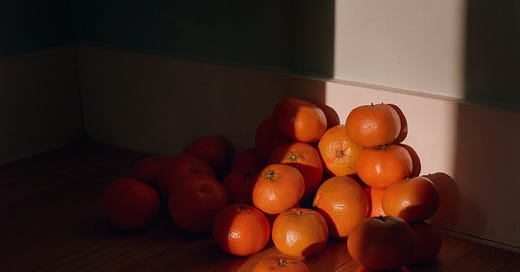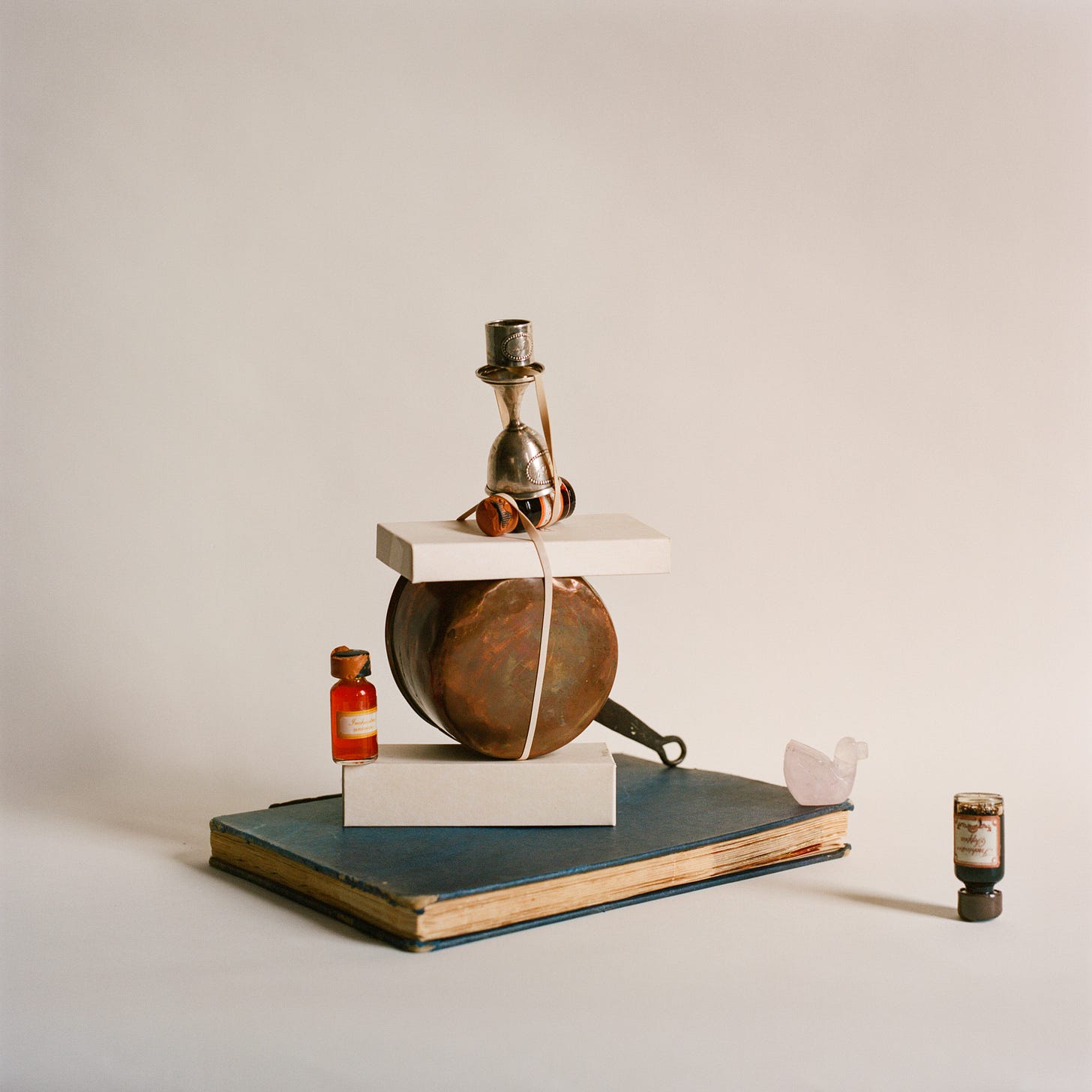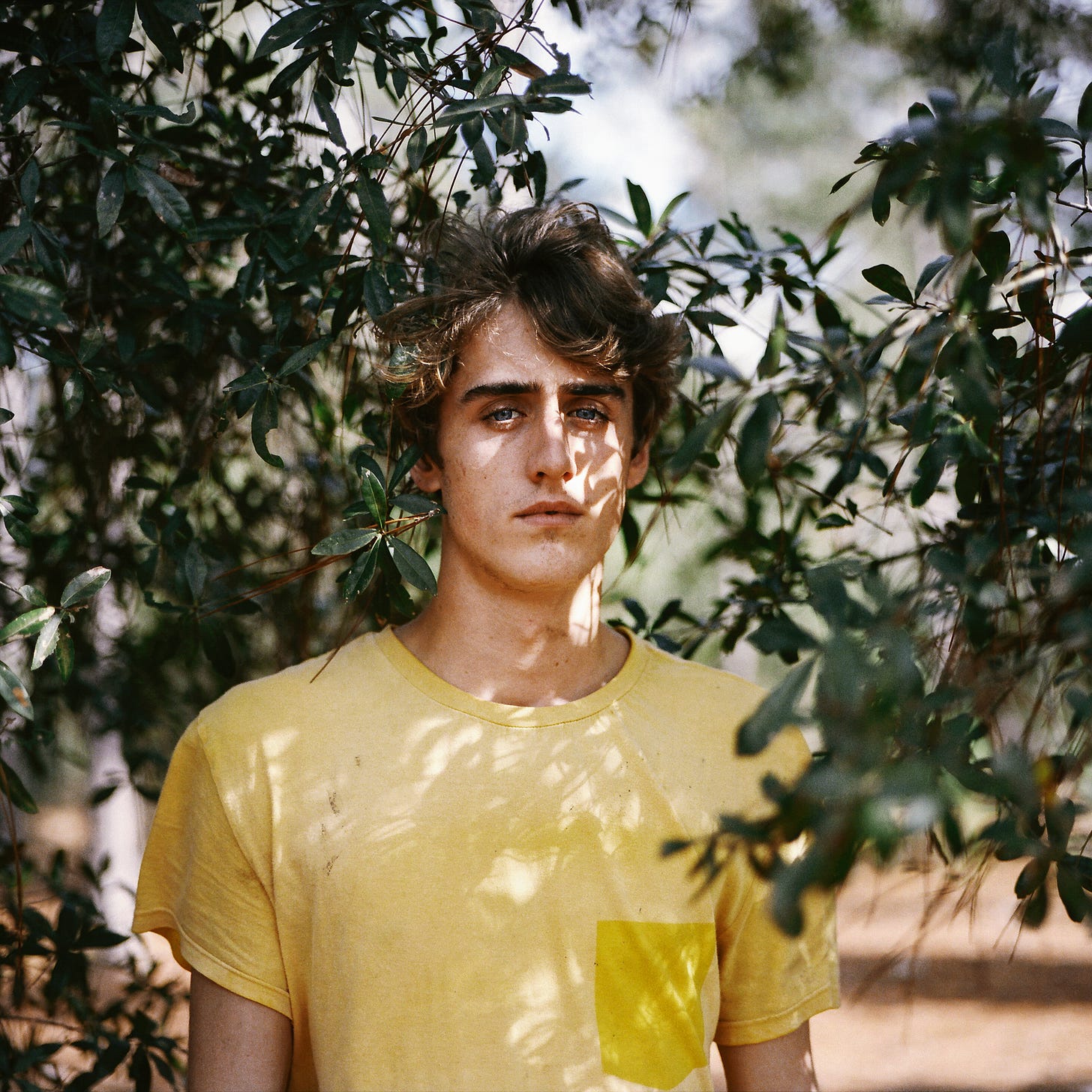We’ve had the pleasure of knowing Grace Ann Leadbeater for the last 10 years now. Grace Ann is a wonderful artist and educator based in Brooklyn, New York. She holds a Bachelor of Fine Arts in Photography from the Savannah College of Art and Design and a Master of Fine Arts in non-fiction writing from Columbia University. We got to ask her a few questions about photography, writing, recommended reads, and more.
As an artist focused on both photography and writing, how does one inform the other, if at all?
Like two friends having a conversation: it’s not so much about the pursuit of agreement; it’s about the pursuit of understanding.
You’re currently represented by the gallery Moxie’s Daughter, where you’re showing a series called Fat Strawberries. Through your work, you’re able to transport people and capture a specific moment and feeling in time. Pomegranates, significant words, clementines, close friends, life. How do you identify which moment is that moment? Why do you document the things that you do and what makes you lean toward specific subjects?
It’s my incessant fascination and fear. To make matters worse, I’m strong-willed. I’ve been drawn to the same things since adolescence, and I need to document the passage of time on those things. When I photograph, there is a right-this-very-second feeling thrumming through me.
We also can’t help but notice the recurrence of red in your work. When we see a red object, we immediately think of you. What is it about red and what does it mean to you?
Red is the most invigorating thing I know. When I see certain shades of red, I get such a jolt I could die.
What are some things you find challenging in both photography and writing?
Waking up and deciding to find time at some point in the day or night to photograph and write rather than staring at my bookcase or texting complaints to a friend. I’ve found that calling my dad and examining the day with him is also helpful. He’s one of the few people who has always supported my artistic practice without asking for anything. That’s how he’s always been. As a child, he taught me how to compost. Because of him, I’ve always felt this duty to contribute something to society each day, no matter how small. Sometimes it’s through sharing ideas; other times, it’s through making a photo; other times, it’s through composting.
What is next for your work, if you’re comfortable sharing?
My still life project, where I’ve been photographing the objects of others. It’s been one of my greatest challenges, photographically speaking. I couldn’t love it any more.
Have you seen anything or anyone lately that inspired you and made you think “Wow, I want to be able to do that”?
That moment occurred a few weeks back while watching my students make a satirical mystery short. The finished film completely delighted me. I can’t imagine making something so brilliant. But thank God I get to witness others doing such.
You’re also an educator and teach kids and teenagers in Brooklyn. What might surprise people about teaching in Brooklyn? Have your students said anything lately that made you laugh?
Budget cuts to the arts are felt quickly. And arts-focused classes are often the ones where students experience the profound.
My students are adding years to my life due to all the laughter they bring. They are so witty! The other day, a student said I seem like I get heartbroken often. When I asked why, she said, “Just look at the lyrics of the songs you love!” Touché.
After going to SCAD for photography, getting your MFA at Columbia University, and now teaching yourself, what is your teaching philosophy?
Question everything.
What do you think the role of social media is for the artist? How do you balance getting people to see your work with actually spending time creating the work?
Unless you’re already wildly successful and/or well-known, social media (Instagram, specifically) is another portfolio. So I begrudgingly must acknowledge the vitality of having a sort of social media presence. But it isn’t always this dread-inducing space. There is so much play, too, and I think posting to Stories can be an incredibly prolific space for that play. Sometimes I do I Spy in my stories. I’m wondering if people have caught on yet, or if they even care.
When making work, I use my cell phone camera when I’m too in my head. Often it’s the vehicle that leads me to my camera-camera.
What books have had the most significant impact on your life and work? Is there one that you’ve meant to read, but haven’t yet?
The Dry Heart by Natalia Ginzburg
American Childhood by Annie Dillard
Random Family by Adrian Nicole Leblanc
Animal Joy by Nuar Alsadir
I’ve never read The Metamorphosis by Franz Kafka. Someone should argue why I could get away with never reading it.⚜️
You can see Grace Ann’s work on her website and Instagram, as well as Moxie’s Daughter.







